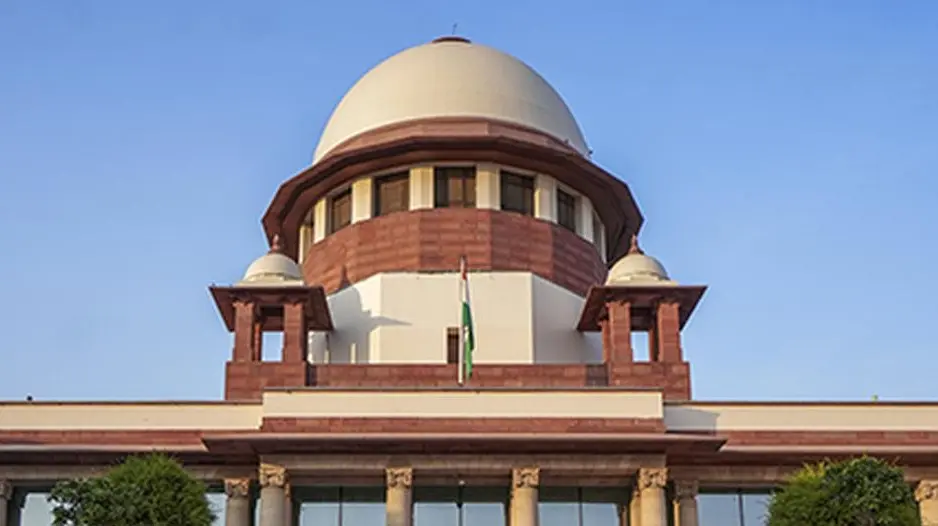
Supreme Court stays key parts of Waqf Amendment Act 2025, citing rights violations
Justice Paused: Supreme Court Stays Key Parts of Waqf Amendment Act 2025 – In a major legal development, the Supreme Court of India has temporarily suspended several controversial provisions of the Waqf (Amendment) Act, 2025. While the law itself remains in force, the Court’s interim order sends a strong message about constitutional balance, religious rights, and the separation of powers.
What Is the Waqf Amendment Act and Why It Matters
The Waqf (Amendment) Act, 2025 was passed earlier this year to reform how Waqf properties are managed across India. Waqf properties are lands or buildings donated by Muslims for religious, charitable, or community purposes such as mosques, madrasas, graveyards, and schools.
India has over 8.7 lakh Waqf properties, making the Waqf Boards the third-largest landowners in the country after Indian Railways and the armed forces. These properties are managed by state Waqf Boards under the supervision of the Central Waqf Council.
The 2025 amendment introduced several changes:
- Required Waqf properties to be registered with district collectors
- Allowed non-Muslims and women to be appointed to Waqf Boards
- Gave government officers the power to decide disputes over Waqf land
- Introduced a rule that only Muslims practicing Islam for five years could create a Waqf
While the government claimed these changes would improve transparency and accountability, critics argued they were politically motivated and could lead to arbitrary control over religious assets.
Supreme Court’s Interim Order: What Has Been Stayed
On September 15, 2025, a bench led by Chief Justice B.R. Gavai and Justice Augustine George Masih issued a landmark interim ruling. The Court refused to suspend the entire Act but stayed several key provisions after finding prima facie concerns about their legality.
Here are the major provisions that have been put on hold:
- Section 3: Required a person to prove they had practiced Islam for five years before creating a Waqf. The Court said this was arbitrary without a clear mechanism and stayed it until rules are framed.
- Section 3C (2): Allowed a government officer to freeze the status of a Waqf property during an inquiry. The Court said this violated the separation of powers and could lead to misuse.
- Sections 9, 14, and 23: Related to the composition of Waqf Boards and the Central Waqf Council. The Court ruled that Muslims must remain the majority in these bodies, limiting non-Muslim members to four in the Council and three in state boards.
- Sections 104, 107, and 108: Concerned with altering revenue records and recognizing Waqf status. These were stayed to prevent third-party claims or dispossession during ongoing disputes.
The Court emphasized that no changes should be made to Waqf property status or ownership until a competent tribunal or High Court gives a final verdict.
Why This Matters: Rights, Religion, and Rule of Law
This interim order is significant for several reasons:
- Protects religious rights: By staying the five-year rule and limiting executive control, the Court has safeguarded the right of Muslims to create and manage Waqf properties without arbitrary barriers.
- Upholds judicial independence: The Court made it clear that government officers cannot decide property rights, reinforcing the principle that only judicial bodies can settle legal disputes.
- Prevents misuse: The freeze on status changes during inquiries stops potential land grabs or political interference in Waqf assets.
- Encourages balanced reform: While the Court didn’t reject the entire Act, it signaled that reforms must respect constitutional values and community trust.
This ruling also sets a precedent for how religious and minority institutions should be governed through inclusive, lawful, and transparent processes, not unilateral executive decisions.
What Happens Next: Legal Battles and Policy Revisions
The Supreme Court’s order is interim, meaning the case is still under review. Petitioners including senior advocates like Kapil Sibal and Abhishek Manu Singhvi have argued that the entire Act should be struck down for violating Articles 25 and 26 of the Constitution, which protect religious freedom.
Meanwhile, the government maintains that the law is constitutional and aims to modernize Waqf management. It has promised to frame rules for the stayed provisions and consult stakeholders.
Here’s what to watch for in the coming months:
- Final judgment: The Supreme Court will continue hearings and may issue a comprehensive verdict.
- Policy revisions: The Ministry of Minority Affairs may revise or clarify the rules to address the Court’s concerns.
- Public debate: Civil society, religious leaders, and legal experts will likely weigh in on the future of Waqf governance.
- Impact on other laws: This case could influence how other religious or charitable property laws are interpreted and amended.
For now, the Court has ensured that no Waqf property will be dispossessed, no third-party rights will be created, and no revenue records will be altered until legal clarity is achieved.
Final Thought on Supreme Court Stays Key Parts of Waqf Amendment Act 2025
The Supreme Court’s pause on key parts of the Waqf Amendment Act is not just a legal decision, it’s a moment of reflection. It reminds us that reform must walk hand-in-hand with respect for rights, history, and constitutional values. As India debates the future of Waqf, the real question is: can we modernize without marginalizing?
Also read: Echoes of Injustice: Mumbai Mosques Cry Foul Over Loudspeaker Crackdown, Court Demands Answers
Stay informed with the latest news and updates – only on Rapido Updates.
1 thought on “Justice Paused: Supreme Court Stays Key Parts of Waqf Amendment Act 2025”
Comments are closed.